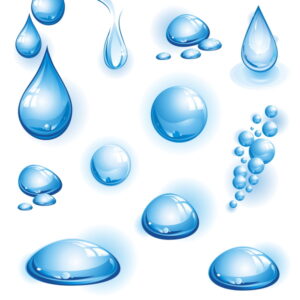
We’ve discussed hidden leaks before, such as the major problem of a slab leak. Today we’re going to look at one of the most insidious of all hidden leaks, the pinhole leak. Yes, we know that the name doesn’t sound too intimidating. Even if you don’t know what a “slab leak” is, the name does sound a touch scary. So what’s so terrible about a “pinhole leak”?
Plenty! And it starts with how small these leaks are. It’s difficult to know you need plumbing service in Montgomery County, PA to fix leaks if you don’t know the leaks exist, and pinhole leaks are devilishly tricky leaks that hide well while creating significant problems.
What exactly is a “pinhole leak”?
A pinhole leak isn’t defined only by size. This type of leak is due to a specific kind of corrosion that affects copper pipes. Copper has replaced other plumbing metals that are highly prone to corrosion like galvanized steel and cast iron. But copper isn’t completely immune to all forms of corrosion. Formicary corrosion can affect it: this is corrosion that occurs because of reactions from chemicals in the water in the pipes or even in the air around the pipes. The chemical reaction causes a patch of grayish corrosion to form on the copper, which weakens the metal enough to allow for tiny leaks to begin opening due to the water pressure. These are pinhole leaks.
How bad can pinhole leaks become?
Any leak in your household plumbing is a problem. With pinhole leaks, the trouble is a combination of gradual, but eventually steep, water waste and accumulating building material damage.
When pinhole leaks start, they rarely occur in isolation. The leaks are probably materializing in other parts of the plumbing, and this can mean significant water waste. The waste may creep up on you gradually so you don’t at first notice the increase in water usage on your bills until you’re paying far more than you should.
Even worse is what pinhole leaks do to building material. Even a small amount of standing water from pinhole leaks will allow for the growth of mildew, and mildew eats right through drywall. The increase in humidity also leads to wood rot that can inflict structural damage to a house.
What can you do about pinhole leaks?
If you suspect hidden leaks in your house because of rising water bills, spots of discoloration on walls or ceilings, or a rise in indoor humidity, then the best step is to call us for leak detection. We can locate pinhole leaks with the same skill as we locate slab leaks—and pinhole leaks are faster and easier to repair. We only have to access the pipes in the walls or ceiling and remove the damaged section and replace it.
Your other best defense against pinhole leaks is to have leak detection done on a regular schedule. We recommend having it done at least every five years. This provides us with an opportunity to check over the plumbing and find any places where you may need more extensive repiping or replacements.
Contact Platinum Plumbing & Heating, Inc. for quality service you can trust.
